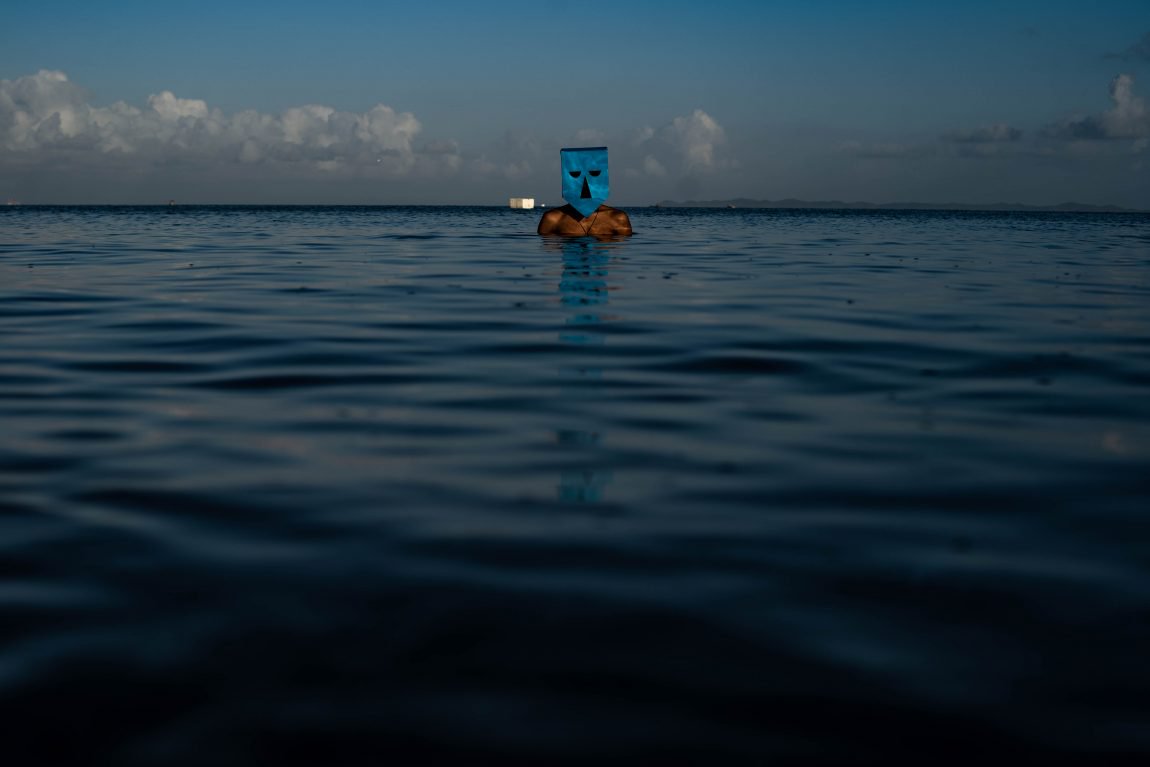Filtering by Tag: music
NEW MUSIC: "Amor Genuino" Ozuna
Miami commission makes 'moral statement' against Cuban artists
Mayito Rivera
The crowd at the Studio 60 Nightclub in Miami-Dade County's Allapattah neighborhood loved Afro-Cuban singer Mario "Mayito" Rivera's performance so much they threw dollar bills at him.
Rivera, 53, and the members of the Los Van Van danced on the cash. It was a full house on the evening of Thursday, May 30, at the Latin nightclub at Northwest 36th Street and Northwest 23rd Avenue.
Miami commissioners want it to be the last time Cuban artists who have the support of the Cuban government can profit from performances in South Florida.
"It is a mockery what these Cuban artists are doing when they come here," said Miami Commissioner Manolo Reyes, who was born in Cuba.
Reyes and Miami Mayor Francis Suarez introduced a resolution urging the U.S. Congress to enact legislation to allow local governments to prohibit businesses from hiring Cuban artists who do business with the Cuban government. Commissioners voted to pass it on Thursday.
The commission wants the proposed ban to stay in place "until freedom of expression is restored for all Cubans and not just a few favored artists" -- including Rivera.
Read more:
NEW MUSIC: "Volver a Vivir" Herencia de Timbiqui feat. Andrés Cepeda
Melii Is Not Playing Around
Credit: Chris Paul Thompson
By Julyssa Lopez
The then-20-year-old had only a few songs and covers to her name at that point. After dropping out of Manhattan’s Edward A. Reynolds West Side High School in 2015 (the same school that hip-hop artist A$AP Rocky once attended), Melii had been working with local managers and releasing her DIY efforts directly to the Internet. Her first real break came in 2017, when she unleashed a remix of Cardi B’s “Bodak Yellow” that went viral, racking up more than 2 million views. A stack of original tracks followed, including “Icey,” “Como Si Na,” and “Shit Talk”—all songs that showed off her raspy voice, brisk flows in English and Spanish, and talent for writing stinging bars and catchy hooks with ease. The early material positioned Melii as the spunky-kid-sister type, someone who punched back at haters and always fought to keep her career throttling forward, despite the challenges of being an emerging female artist in rap.
Read more: https://www.thenation.com/article/melii-phases-album-review/
Cuban Diva Omara Portuondo Feels As Strong As Ever On 'Last Kiss' World Tour
Credit: Johann Sauty
By: Mandalit Del Barco
In 1996, Omara Portuondo was working on an album at Havana's famous recording studio, Egrem. Upstairs, American musician Ry Cooder was laying down tracks for Buena Vista Social Club, a project with veteran Cuban musicians like Compay Segundo. Portuondo was invited to come up and sing a duet with him. They sang "Veinte Anos," a song Portuondo learned as a child.
"Without rehearsal, this was a live recording. One take. It's unbelievable," says Cuban bandleader Juan de Marcos Gonzalez. He had scouted and rediscovered the older musicians for Buena Vista Social Club. But he says Portuondo was still a star on the island, and bringing her into the project was a dream.
"I remember that once, Mr. Ry Cooder told me, 'Omara is the Cuban Sarah Vaughan.' And I said to him, 'No, Sarah Vaughan was the American Omara Portuondo,'" Gonzalez says.
New Music: Los Rakas "Yo Tambien"
Off the new album Manes de Negocios (“Men of Business”)
New Music: Kafu Banton x El Micha x Farruko "Playa"
Panamá (Kafu Banton), Cuba (El Micha) and Puerto Rico (Farruko) team up for a summer hit remixing a Kafu classic!
Meet the Brazilian Musicians Leading Bahia’s Afrofuturism Movement
Credit: BAIANASYSTEM
By: Felipe Maia
“In Salvador, we see the future in the representations of the past, so you are the future because you can keep the present renewed: the ancestrality is the future,” says Russo Passapusso, the lead singer and creative mind behind BaianaSystem. The band was born in 2009 and has become one of the main exponents of Brazilian music in the past few years. Layering Jamaican music into patterns and textures sourced from the black diaspora, Russo Passapusso and his bandmates have carved their place in the Brazilian music scene between the deliberately pop and the strictly alternative. The crowds at their gigs engage in death metal circle pits and West-African stomping, while chanting singing fervently to the band’s tunes.
I first met Russo when he was toasting as an MC for the local sound system MiniStereo Público. It was lemanja Day, a century-old celebration that takes place every February 2nd at Rio Vermelho beach, in Salvador.
Read more: https://remezcla.com/features/music/artists-bahia-afrofuturism/
DJ Carnage says mental health has been stigmatized in music industry
Credit: Source Magazine
DJ Carnage in a recent interview stated that mental health has been stigmatized in the music industry, saying many artists are afraid to talk about the issue.
“Do you think that people are afraid to talk about these issues mental issues — mental health, depression, drug abuse in the music industry?” asked correspondent Alexandra Oliveira.
“100 percent,” said Carnage, whose real name is Diamanté Anthony Blackmon.
“All of this stuff has been in the industry for decades and decades,” he continued.
Meet Young M.A: The Afro-Latina She-Rapper Blowing Minds Nationwide
Credit: BE Latina
Brooklyn native Katorah Kasanova Marrero, better known by her stage name Young M.A, has made her own way as an openly-gay, half-Boricua, half-Jamaican rapper by embracing everything about herself that she brings to the table as a force of creativity, identity, and fire. The M.A in her stage name stands for “Me Always,” affirming her commitment to realness in an era when it’s easy to get caught up in the glitz, glam, and pressures of the entertainment industry.
She was only 24 when her breakout hit “OOOUUU” became the only song by a solo female rapper to reach the Billboard top 10 R&B/Hip Hop chart in all of 2016
Read More: https://belatina.com/meet-young-m-a-the-afro-latina-she-rapper-blowing-minds-nationwide/
How a DJ's Experiences With Immigration and Family Separation Inspired a Song for Change
Credit: Time
As the refugee crisis widens across multiple continents, prominent musicians like Coldplay, the RZA and Amanda Palmer have released songs and music videos that grapple with issues of displacement and immigration. Carnage, a DJ and producer, has added one more to the growing canon: “Letting People Go,” a music video that traces the journey of a family from their Nicaraguan hometown to a U.S. detention center.
But Carnage’s aims are not just to comment on politics or empathize with the plight of others. His motivation is deeply personal. Carnage, born Diamanté Anthony Blackmon, grew up in Guatemala and came to the U.S. as a child who did not speak English after his family fled the violence in Nicaragua during the 1970’s revolution.
Read more: http://time.com/5573948/dj-carnage-letting-people-go-immigration/
Additional sources: https://thehill.com/hilltv/rising/442471-dj-carnage-wants-to-use-platform-to-raise-awareness-around-immigration-issues
NEW MUSIC: "No Te Calles" Rubén Blades ft. Making Movies
Ruben Blades ft. Making Movies off the forthcoming album by Ruben Blades “Paraiso Road Gang
“SAL A LA CALLE” equivale a “NO TE ESCONDAS MÁS”, exprésate contra el mal y marcha contra la corrupción. Los que apoyamos al bien somos más. Los que apoyan al mal son menos que nosotros, en cualquier sociedad. Tengan fe. – RUBÉN BLADES
NEW MUSIC: "Breaking Down The Door" Santana ft. Buika from the upcoming album, Africa Speaks
NEW MUSIC: "Breaking Down The Door" ft. Buika from the upcoming album, Africa Speaks, available on June 7th! Pre-order Africa Speaks today!
NEW MUSIC: "Devorame" Los Rakas Ft. Amara La Negra
Los Rakas Ft. Amara La Negra "Devorame"
How I Made It: Michael Brun’s Haitian Block Party
By: Antonio Cereijido
DJ and producer Michael Brun says that Haiti is often portrayed as a “taking country”—meaning always receiving, never giving. That’s why he produced a song called “Bayo” which means “to give” or “giving it to them” in Haitian Creole. Brun said that he wanted to show people that, “Haiti has a lot to offer because culturally and historically it’s very rich.”
His tour is also titled “Bayo.” Along with a crew of other Haitian musicians, Brun is bringing a slice of Haitian culture and daily life to cities across the United States.
Brun got his first break as a DJ in the electric dance music circuit opening for Avicii when the Swedish EDM sensation visited Haiti over a decade ago and Brun was only a teenager. Since then, Brun has traveled the world performing at major festivals like Coachella and Electric Daisy Carnival. He’s also produced music with notable artists including Colombian reggaeton star J Balvin.
Brun says he learned a lot about what goes into major EDM productions, but wanted to create a tour that felt more “organic and rootsy.” In this story, Brun tells Latino USA why knowing music history is crucial to create good music, how he envisioned his tour, and how Haitian music is deeply tied to music found across Latin America and Africa.
Read more @LatinoUSA https://www.latinousa.org/2019/04/07/michaelbrun/











